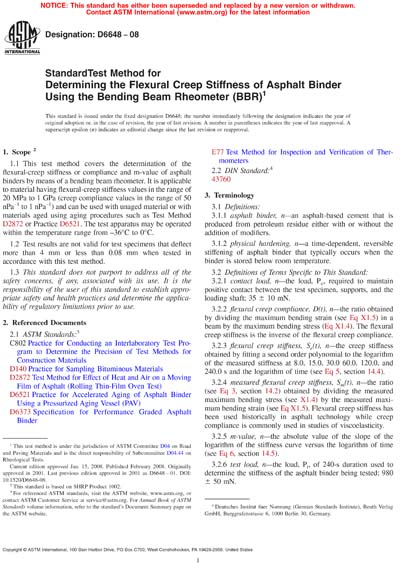Historical
ASTM D6648-08
Standard Test Method for Determining the Flexural Creep Stiffness of Asphalt Binder Using the Bending Beam Rheometer (BBR)
1.1 This test method covers the determination of the flexural-creep stiffness or compliance and m-value of asphalt binders by means of a bending beam rheometer. It is applicable to material having flexural-creep stiffness values in the range of 20 MPa to 1 GPa (creep compliance values in the range of 50 nPa–1 to 1 nPa–1) and can be used with unaged material or with materials aged using aging procedures such as Test Method D 2872
1.2 Test results are not valid for test specimens that deflect more than 4 mm or less than 0.08 mm when tested in accordance with this test method.
1.3 This standard does not purport to address all of the safety concerns, if any, associated with its use. It is the responsibility of the user of this standard to establish appropriate safety and health practices and determine the applicability of regulatory limitations prior to use.
ASTM International [astm]

